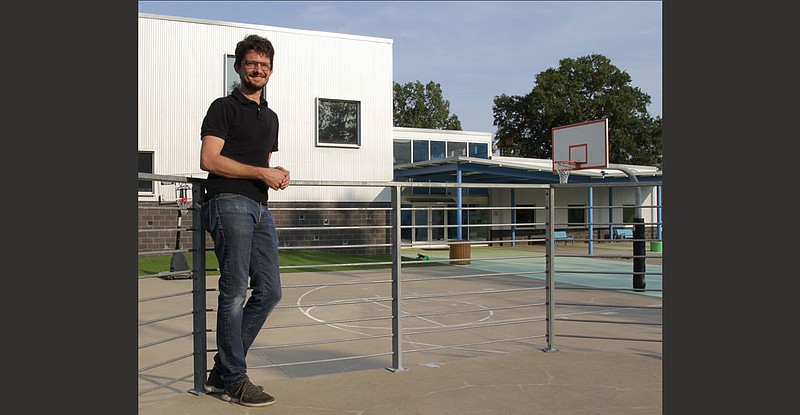Reposted with approval from The Arkansas Democratic-Gazette
Editor’s note: This is part two of a two-part series.
When Darren Hendricks went to the homeless shelter at Our House in Little Rock in early 2017, his circumstances were less than ideal, but he was not as down and out as a person can get, and he didn’t want to be. Hendricks, then 55, had just come to Arkansas from North Carolina and although he had a job lined up, a lengthy background clearance process for a job in the call center of a local financial services company would result in a two month delay before he could begin earning a living.
That presented a problem that Hendricks said faces all people trying to find living accommodations when they have no savings built up and no immediate source of income, a problem he said that only compounds with time. He said his last paycheck from his job in North Carolina didn’t last long once he arrived in Arkansas.
“People don’t realize it but being homeless is expensive,” he said. “You can’t buy food to take home and cook so your choices are fast food or something that can be bought and stuck in a microwave, or junk food. Those are your choices and they are all expensive.”
Laundry, he said, has to be done at laundromats, and must be done often because most homeless people only have the clothes they can carry with them.
“Unless you’re lucky enough to have a car and if you are then you have to have gas,” Hendricks said. “I was lucky enough to have a car so I had gas, I had car insurance, so yes, it is expensive. People don’t take that into consideration; they think if you’re homeless, well you’ve got no expenses.”
With a big laugh, Hendricks smiled and said, “Wrong, those don’t go away.”
These days, however, Hendricks can afford to laugh and smile, and he is far more secure with a steady income and a tiny home he built himself over three years that sits on a half-acre lot he bought in 2017 in Pine Bluff. He spent that three years working nights and weekends on his house after spending the day earning a paycheck.
Ben Goodwin, director of Our House, said Hendricks is a great example of what can be accomplished through hard work and determination. Although the average length of time a person spends at Our House is between three and four months, Goodwin said the shelter, with its emergency barracks-style shelter, is a more apartment-style transitional living facility. It has an on-site day care and children’s center and numerous training programs to provide financial literacy and job training, and it is equipped to offer long-term shelter and training for as long as two years.
That help doesn’t come without strings attached, however, Goodwin said. Residents must remain drug and alcohol free, secure full-time employment within 21 days and maintain that employment during the length of their stay. They also have to contribute 75% of their earnings into a dedicated savings program, pay a small monthly maintenance fee and participate in daily chores.
The goal of Our House, Goodwin said, is to provide people who are homeless with food, shelter, the tools and resources they need to maintain stability, and the time to build up a financial safety net to enable them to acquire permanent housing, a car, pay off debts, or whatever purpose they wish.
“When someone comes here, what we want is for them to leave here with the ability to engage with their community and to never experience homelessness again,” he said. “We provide the tools, the time and the encouragement to help them meet that goal if they want it.”
Although Goodwin said Hendricks is one of the center’s success stories, he qualified that by saying emerging from homelessness, or not, is not necessarily a matter of success or failure.
“It’s not for us to decide what defines success for someone else,” he said. “Some people come here and after a day or two they say, ‘nah, I’m good,’ and they leave because they don’t care for the rules or the structure, and that’s OK. Others come here, put back some money for a few weeks or months and decide that’s plenty for them, and that’s OK, too. And others, like Darren, take advantage of all we offer to do all they can to establish goals while they are here and to realize those goals once they leave.”
For now, Hendricks is happy with his 450-square-foot home, his three-month-old Labrador retriever mix puppy he named Honey, and his job providing transportation for railroad crews. In the future, he said, he would like to establish a community of affordable housing for homeless people with an eye toward helping to alleviate for others the same straits from which he was able to emerge.
He said programs like what Our House offers are essential, especially for the working homeless, because of the up front expense of acquiring permanent housing.
“Let’s say you find a place for $450 a month, for example,” Hendrix said. “That means you need $900 for the first month’s rent and security deposit, at least, and you need deposits for utilities, which, if your credit is bad, could be hundreds of dollars.”
He said that, combined with back utility bills that some people may owe, and any other of a number of past financial obligations that could come up, the initial financial requirement to get even an inexpensive place to live presents a barrier to many people.
“You’re looking at maybe a couple of thousand dollars or more, just to get in a place for the first month,” he said. “In the meantime, you still have to eat, do laundry, get back and forth to work, and it’s too much for someone with no savings. It takes time to build that up but if you’re on the streets, you don’t have time.”
Our House, he said, provides the time to clear up past financial missteps, financial education to help prevent future ones, and time to build up a nest egg while preparing to engage in community life and, perhaps with a bit of luck and a bit of pluck, to never experience homelessness again.

